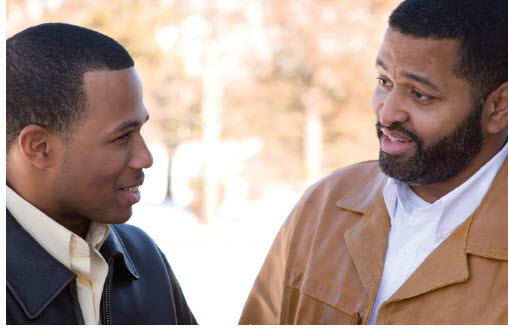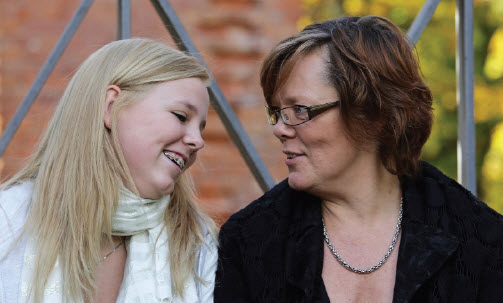 Introduction to Amendment 64
Introduction to Amendment 64
In November 2012, Colorado voters approved Amendment 64, which allows for adults 21 and over to legally possess and consume marijuana. In addition, it calls on the state to establish appropriate regulations to enable the production and sale of marijuana. This has been a high profile issue for several months, and many teens may now be asking questions about what this means.
If youʼre a parent or other caring adult in a childʼs life, itʼs important to know what the new law says so you can answer your childʼs questions. Keep in mind that just because your childʼs not asking you a lot of questions, that doesnʼt means he or she doesnʼt have them. Take the opportunity to bring this topic up at dinner, in the car, or anytime you can carve out some time to have a genuine conversation with your teen. Hereʼs some information on marijuana and marijuana legalization to help get this conversation started.
First, hereʼs what Amendment 64 is about:
- It allows people 21 years of age and older to possess up to one ounce of marijuana and consume it in private.
- It allows someone 21 years of age and older to grow up to six marijuana plants in private.
- It calls on the state to establish processes and regulations for producing and selling marijuana.
Hereʼs what it doesnʼt do:
- It doesnʼt allow for anyone under the age of 21 to possess or consume marijuana.
- It doesnʼt permit people to drive while intoxicated by marijuana.
- It doesnʼt change federal law; marijuana is still a federally illegal drug.
Common Q&As
When your child asks,
Why is it legal now when itʼs been illegal all this time?
You can answer,
“Itʼs legal in Colorado because voters felt that it should be legal for adults 21 and older to use marijuana recreationally, similarly to how some adults use alcohol. It doesnʼt mean itʼs safe for you to use, especially as you start driving. As a young person, your brain is still developing, and substances like marijuana and alcohol have a really negative effect on it. Marijuana affects your learning, memory, coordination and decision‑making abilities.”
When your child asks,
Since itʼs legal for adults, though, wonʼt I get in less trouble if I get caught?
You can answer,
“Youʼll still get in trouble. Not only will you still get in legal trouble, but since marijuana is still illegal under federal law, you may not be able to get student loans or scholarships for college if you use the drug.”
When your child asks,
But if itʼs legal, it must not be very bad, right?
You can answer,
“Thatʼs not necessarily the case. There are other legal drugs that are really harmful to your health, and thatʼs what Iʼm most worried about. Alcohol, tobacco, and marijuana are legal for Colorado adults to consume, but that doesnʼt mean theyʼre always safe. And theyʼre definitely not safe or healthy for youth to use. For someone your age, using marijuana is going to affect your learning and your memory; itʼs going to affect your coordination and your decision‑making abilities. You and your brain function the best when youʼre in control, not when a drug is in control.”
When your child asks,
But itʼs not like marijuana kills people like alcohol does, so itʼs not as bad as using alcohol, right?
You can answer,
“People can die a lot of different ways from drug use. With alcohol, itʼs true that some people will die from alcohol poisoning. Those dangers are definitely reasons I donʼt want you using alcohol either. Think about tobacco. Tobacco is really unhealthy and kills hundreds of thousands Americans a year, but nobody really dies from overdoses with tobacco the same way they would with alcohol. Just because we donʼt see people immediately dying from marijuana use doesnʼt mean itʼs healthy or safe. Drugs affect the brainʼs ability to function and using marijuana takes away your ability to make good decisions. It can also affect your concentration in school and doing the things you love doing like sports or music. What I really want you to understand is that all of these drugs affect you differently and none of them are healthy or safe for you to use. “
When Your Child Asks If You’ve Used Marijuana
Some parents are uncomfortable talking with their teens about drug use because they’re afraid of getting asked by their children if they used drugs when they were younger. What do you say if you get asked this question? We encourage parents to be honest with their children, but also not disclose more information than you need to. If you did use marijuana when you were younger, this means that you can speak from experience why you wouldn’t want them to use. In general, make sure the conversation doesn’t turn to your past but stays centered on your child’s present and future. Even though it should be a two-way conversation, the focus should stay on why you care about your child, what you want for your child’s future, and how you think using marijuana and other drugs will stand in their way.
It’s also important to communicate to your child that if they do feel tempted to use, or engage in using marijuana, that they talk to you about it. Having an ongoing conversation with your child is a critical preventive strategy. Also, make sure your child knows they can call you anytime they find themselves in an unsafe situation.
Resources
Still have questions? There are plenty of resources out there to help you navigate what could be a difficult conversation for you and your child. If you have additional questions about marijuana and its effects, visit the National Institute on Drug Abuse at www.drugabuse.gov/drugs‑abuse/marijuana to learn more.
Also consider if talking with another parent would help. If so, and youʼre not sure of who to turn to, call the Partnership at Drugfree.orgʼs toll‑free Parent Helpline at 1.885.DRUGFREE. Parent specialists are available to talk with you 8 a.m. – 4 p.m., Monday – Friday.
If you think your child may be using drugs and in need of help, turn to Arapahoe House, Coloradoʼs leading nonprofit provider of quality, affordable drug and alcohol treatment by calling 303.657.3700 or e‑mail [email protected]. Trained counselors are available Mon ‑ Sat, 8 a.m. to 7 p.m.to help talk with you about options for your child and connect you with local treatment providers.
